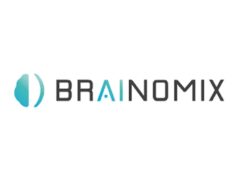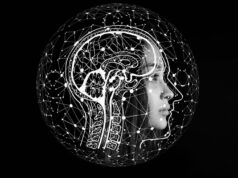 RapidAI and the Alaska Stroke Coalition (ASC) have announced their partnership on the ‘Rapid AK’ project—a three-year initiative focused on advancing health equity for Alaskans affected by stroke. As part of the effort, six hospitals across the US state have implemented RapidAI’s artificial intelligence (AI)-powered core stroke imaging and workflow products to help overcome challenges associated with rural care, joining an additional four Alaskan hospitals already leveraging the technology to improve stroke identification and treatment in their regions.
RapidAI and the Alaska Stroke Coalition (ASC) have announced their partnership on the ‘Rapid AK’ project—a three-year initiative focused on advancing health equity for Alaskans affected by stroke. As part of the effort, six hospitals across the US state have implemented RapidAI’s artificial intelligence (AI)-powered core stroke imaging and workflow products to help overcome challenges associated with rural care, joining an additional four Alaskan hospitals already leveraging the technology to improve stroke identification and treatment in their regions.
Founded in 2023, the ASC is a non-profit organisation dedicated to improving the treatment and care of stroke, which is consistently ranked as the fifth leading cause of death and the leading cause of disability in Alaska. Through its partnership with healthcare providers, stroke survivors, and community stakeholders, the ASC aims to reduce the impact of stroke on individuals and families by enhancing prevention, treatment, and rehabilitation efforts, with the ultimate goal of achieving better stroke outcomes and quality of life for residents in every region of Alaska.
“Alaska is certainly unique in its vast size and rural landscape. In fact, a patient might need to travel nearly the same distance as from Dallas to New York just to reach thrombectomy services at either Providence Alaska Medical Center or Alaska Regional Hospital, the state’s only comprehensive stroke centre,” said Lucy He (Anchorage Neurosurgical Associates, Anchorage, USA), physician sponsor of the ASC. “We can’t control the distance or weather that stands in the way of timely treatment but, by leveraging this technology, we’re learning that we can directly impact the number of stroke patients we detect and how fast we treat them, resulting in more equitable care for residents across the state.”
While rural hospitals in particular face a host of challenges in prompt diagnosis and treatment of stroke—including limited technology, distance from surgery-capable centres, and a lack of specialised, multidisciplinary teams—a recent press release details that RapidAI combats these challenges by offering:
- Clinical context on computed tomography (CT) scans, such as insights on salvageable brain tissue—information that typically requires a specialised physician to determine
- A centralised patient workflow through mobile and web applications that allow the entire care team, even across hospitals hundreds of miles away, to see critical patient information in a single location
- Collaborative decision-making and planning across the network to bridge the gap in patient care and prevent unnecessary or delayed transfers—all Alaska hospitals using RapidAI have the opportunity to see imaging and to communicate with ease
“Supporting the ASC exemplifies our commitment to developing technology that goes beyond the algorithm, truly enabling care teams to improve equity in stroke care across geographically dispersed areas,” said Karim Karti, chief executive officer of RapidAI. “To already be making a meaningful impact is a powerful testament to the value of RapidAI in fostering connected, confident clinical care and improving patient outcomes.”









